Today’s recipe is a delicious Italian dish: Lamb and Artichoke Stew. My mum would often make it when artichokes were in season and it would often be on our Easter menu as well, as Italians usually eat lamb for the occasion. Growing up, I was not a big fan of lamb, but this dish used to conquer even me! It is that good! You can make it with beef as well, but I suggest you give lamb a go, as it really goes well with artichokes and the gremolada at the end gives it a refreshing, yet garlicky taste. Yum! Serve it with creamy polenta or mash potatoes for a very hearty meal!
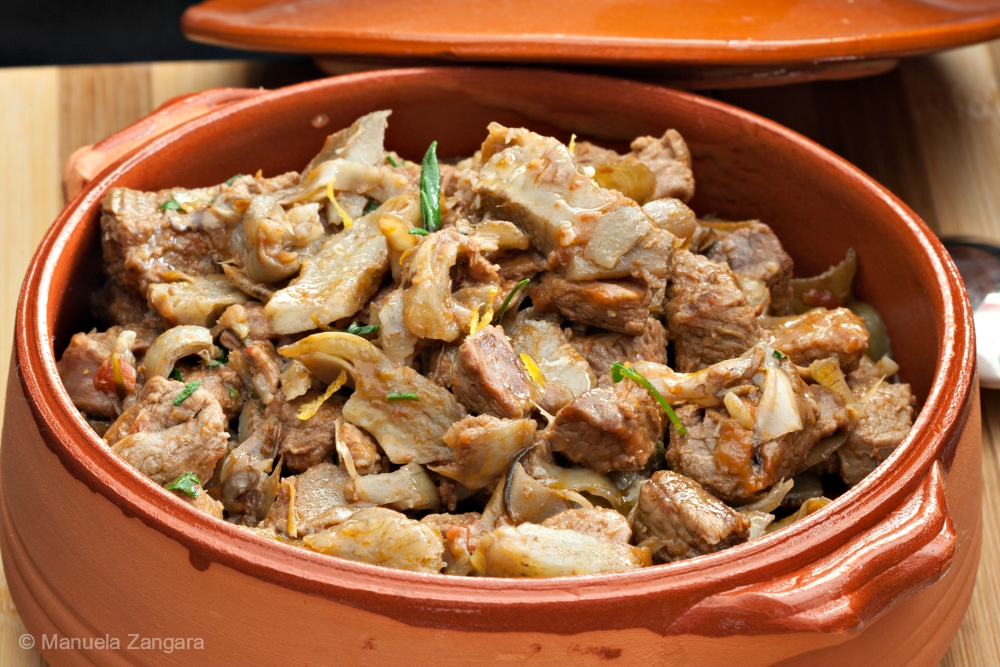
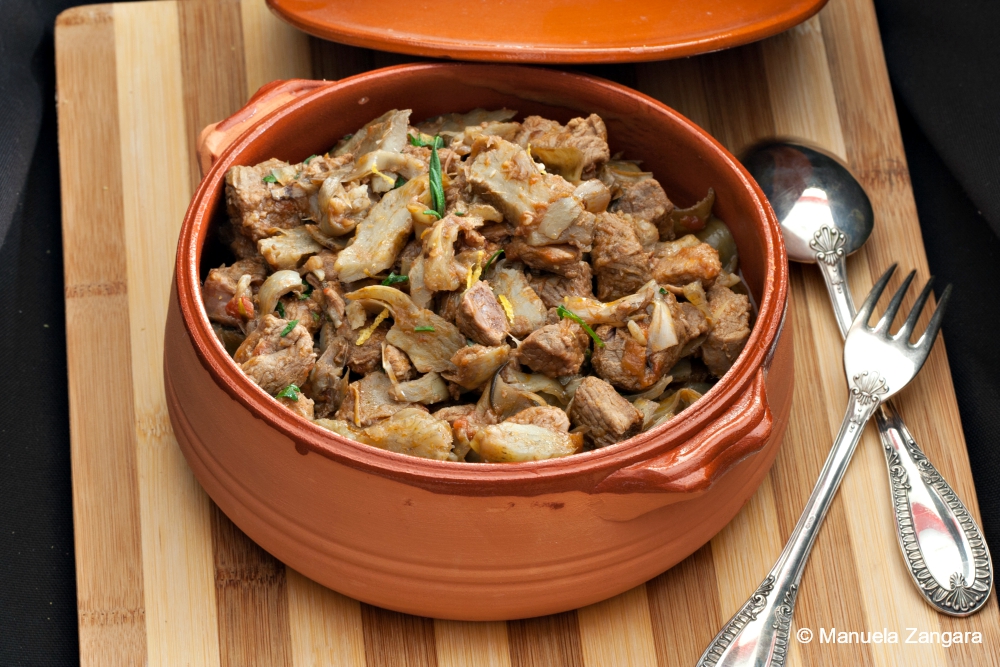
Lamb and Artichoke Stew
Lamb and Artichoke Stew – a delicious Italian lamb stew, perfect for a cold winter’s night.
Prep Time: 30 minutes
Cook Time: 1 hour 30 minutes
Total Time: 2 hours
Servings: 4
Ingredients
Stew
- 500 gms – 1 lb. lamb leg cubed
- 600 gms – 1 1/3 lbs. artichokes cleaned and sliced
- 1 onion chopped
- 5 tbsp tomatoes diced
- 3 sage leaves
- 2 bay leaves
- 1 rosemary sprig
- 60 ml – ¼ cup white wine
- 2 tbsp extra virgin olive oil
- Salt and pepper to taste
Gremolata
- 2 garlic cloves very finely chopped or pressed with the garlic press
- Zest of 1 lemon grated
- 1 tbsp continental parsley finely chopped
Instructions
-
Sauté the chopped onion with the extra virgin olive oil in a saucepan. Let it sweat and then add the cubed lamb. Lightly brown it on all sides. Add the white wine and let the alcohol evaporate.
-
Add the bay leaves, sage, rosemary and tomatoes and mix.
-
Add enough water to cover the meat, cover the saucepan and let it cook on a low fire for at least 1 hour, or until tender. You may have to add a little water to it if it dries up. You want to have the lamb constantly covered with water.
-
Add the sliced artichokes, salt, and pepper to taste, and keep cooking, covered, until the artichokes are tender. This will take between 20 to 30 minutes depending on the kind of artichokes and the thickness of the slices.
-
When ready to serve, add the Gremolada ingredients (grated lemon zest, garlic, and parsley) and mix well. Then put the fire off and serve with polenta or mash.
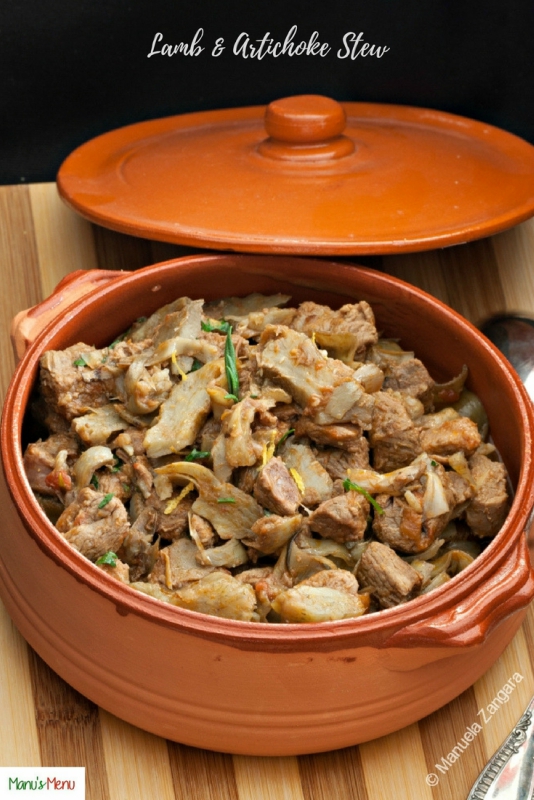





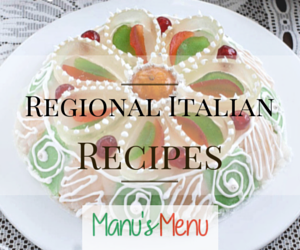


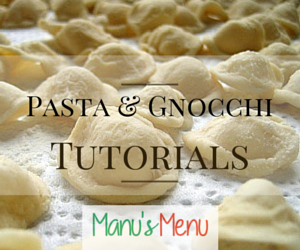


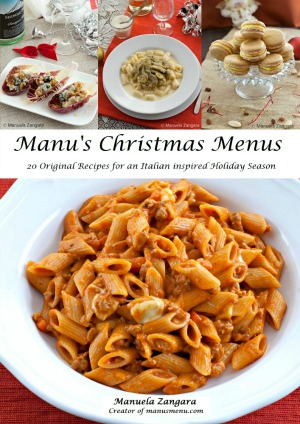





That looks amazing. Come march I might try to cook it with some of the wild artichokes growing around me (probably either cardoons or milk thistle).